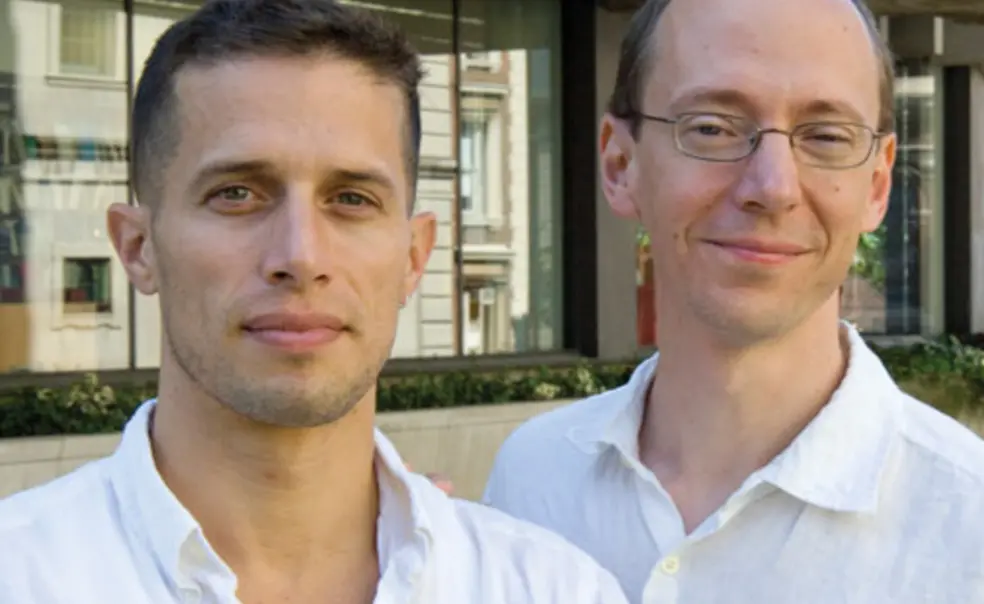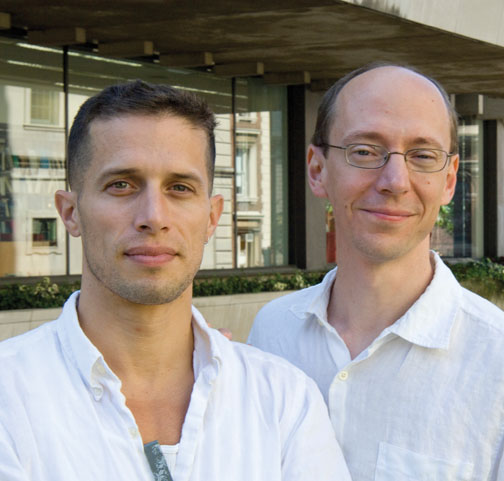Last spring, professors D. Graham Burnett ’93 (history) and Jeff Dolven (English) submitted this application for $750,000 in response to a request for research proposals by defense contractor Lockheed Martin. Their topic: irony in the national defense. Princeton declined to forward the proposal to the company.
(The proposal was first published in Harper’s magazine.)
PROPOSED PROJECT TITLE: Irony in the National Defense
PROPOSED PROJECT PERIOD OF PERFORMANCE: 2010–2013
PROPOSED PROJECT FUNDING (Estimate): $750,000
PROPOSED PROJECT RELEVANCE TO LM STRATEGIC TECHNOLOGY THREADS:
1) Advanced Active and Passive Sensing; 2) Distributed ISR [Intelligence, Surveillance, and Reconnaissance] and Attack; 3) Human Terrain
PROPOSED PROJECT ABSTRACT:
Irony is a powerful and incompletely understood feature of human dynamics. A technique for dissimulation and “secret speech,” irony is considerably more complex than simple lying and even more dangerous. Ideally suited to mobilization on the shifting terrain of asymmetrical conflict, inherently covert, insidiously plastic, politically potent, irony offers rogue elements a volatile if often overlooked means by which to demoralize opponents and destabilize regimes. And yet, while major research resources have for forty years poured into the human sciences from the defense and intelligence community in an effort to gain control over the human capacity to lie (investments that led to the polygraph, sodium pentothal and its successor compounds, “brain fingerprinting” and associated neuro-physiological imaging techniques, etc.), we have no comparable tradition of sustained, empirical, applied investigation into irony. We know very little about its specific manifestations in foreign cultures; we understand almost nothing about the neurological basis of its expression; we are without forward-looking strategies for its mastery and mobilization in the interest of national defense. This project, led by a pair of PIs [principal investigators] with a strong commitment to irony and to the research university, will position Lockheed Martin for field leadership in an important new area of strategic and commercial growth.
Burnett and Dolven propose to take on a sustained three-year, three-pronged, interdisciplinary investigation of Irony in the National Defense, drawing on social scientists, engineers, and neurobiologists ... .
1) THE HUMAN TERRAIN: If we don’t know how irony works, and we don’t know how it is used by the enemy, we cannot identify it. As a result, we cannot take appropriate steps to neutralize ironizing threat postures. This fundamental problem is compounded by the enormous diversity of ironic modes in different world cultures and languages. Without the ability consistently to detect and localize irony, the intelligence agents and agencies are likely to lose valuable time and resources pursuing chimerical leads, and to overlook actionable instances of insolence. The first step toward addressing this situation is a multilingual, collaborative, and collatory initiative that will generate an encyclopedic global inventory of ironic modes and strategies. More than a handbook or field guide, the work product of this effort will take the shape of a vast, searchable, networked database of all known ironies. Making use of a sophisticated analytic markup language, this “Ironic Cloud” will be navigable by means of specific ironic tropes (e.g., litotes, hyperbole, innuendo, etc.), by geographical region or language field (e.g., Iran, North Korea, Mandarin Chinese, Davos, etc.), as well as by specific keywords (e.g., nose, jet-ski, liberal arts, Hermès, nightsoil, etc.). By means of constantly re-weighted nodal linkages, the “Ironic Cloud” will be to some extent self-organizing in real-time, and thus capable of signaling large-scale realignments in the “weather” of global irony as well as providing early warnings concerning the irruption of idiosyncratic ironic microclimates in particular locations — potential indications of geopolitical, economic, or cultural hot spots.
2) ADVANCED ACTIVE AND PASSIVE SENSING: This monitory feature of the “Ironic Cloud” leads to further consideration of the different ways to scan for and detect irony. But this work needs to be done at multiple scales: global, regional, theater, cell or sect, individual, etc. The development of increasingly refined technologies for brain-imaging (e.g., PET, CAT, fMRI, etc.) has opened a staggering new world for the investigation of the somatic basis of psychological functioning. Language research has been at the forefront of this work. The time is ripe for a full-scale study of the neurophysiology of irony. What subregions of the brain are metabolically active in an ironizing subject? What dynamical patterns are revealed by ironic expressions? Can irony be “stimulated” or “suppressed” by chemical or electro-physiological or magneto-inductive means? The answers to these questions will be crucial to the design and testing of irony-scanning equipment. While it is likely that such devices will for some time require relatively high-cost equipment (and thus be primarily of use only to specialized services with access to laboratory environments) there is reason to hope that biochemical or macrometabolic correlates will be discovered that would allow for lower cost and portable “Irony Kits” (probably saliva-based, and likely making use of litmus-paper-like tabs) that could be counted on to identify ironic subjects or situations to an adequate first-order level of accuracy. The field value of such systems for military intelligence and domestic surveillance needs no elaboration.
3) DISTRIBUTED ISR AND ATTACK:Burnett told PAW’s Mark F. Bernstein ’83 what was behind the idea:
“Both of us began our first semesters teaching at Princeton in the autumn of 2001, and within days the world, and this country, looked very different. Our drafting of this satirical proposal certainly reflected an ongoing preoccupation with the current political climate in this country, but, perhaps equally importantly, a preoccupation with the general drift of the modern research university in the U.S. over the last half-century into the orbit of government-funded and, increasingly, corporate-funded research.
“Anthony Grafton [the Henry Putnam University Professor of History], a dear friend and colleague, wrote a piece for The New Republic in 2007 that took up the problem of the humanities and national-security policy. He pointed out that our political and military leaders have been seduced by an ersatz model of technocratic ‘expertise’ and that humanists have largely conspired in their own marginalization. The implication was that there were basic things that humanists need to keep saying, and that need to be heard. Our playful proposal can be read as a gesture in this direction: Great ironists make lousy zealots, and thus the humanities, the great enemy of zealotry, attend with particular assiduity to the delicate registers of irony.
“As we say in our proposal, irony is generally a ‘weapon of the weak,’ and we are inclined to think that, in a deep way, the humanities are fundamentally ‘weak’ in that they may really have very little to offer to those who are seeking practical answers to the problems of statecraft. At the same time, I am not sure this is all bad. It is our basic belief that weakness is a precondition for both beauty and love.”













No responses yet